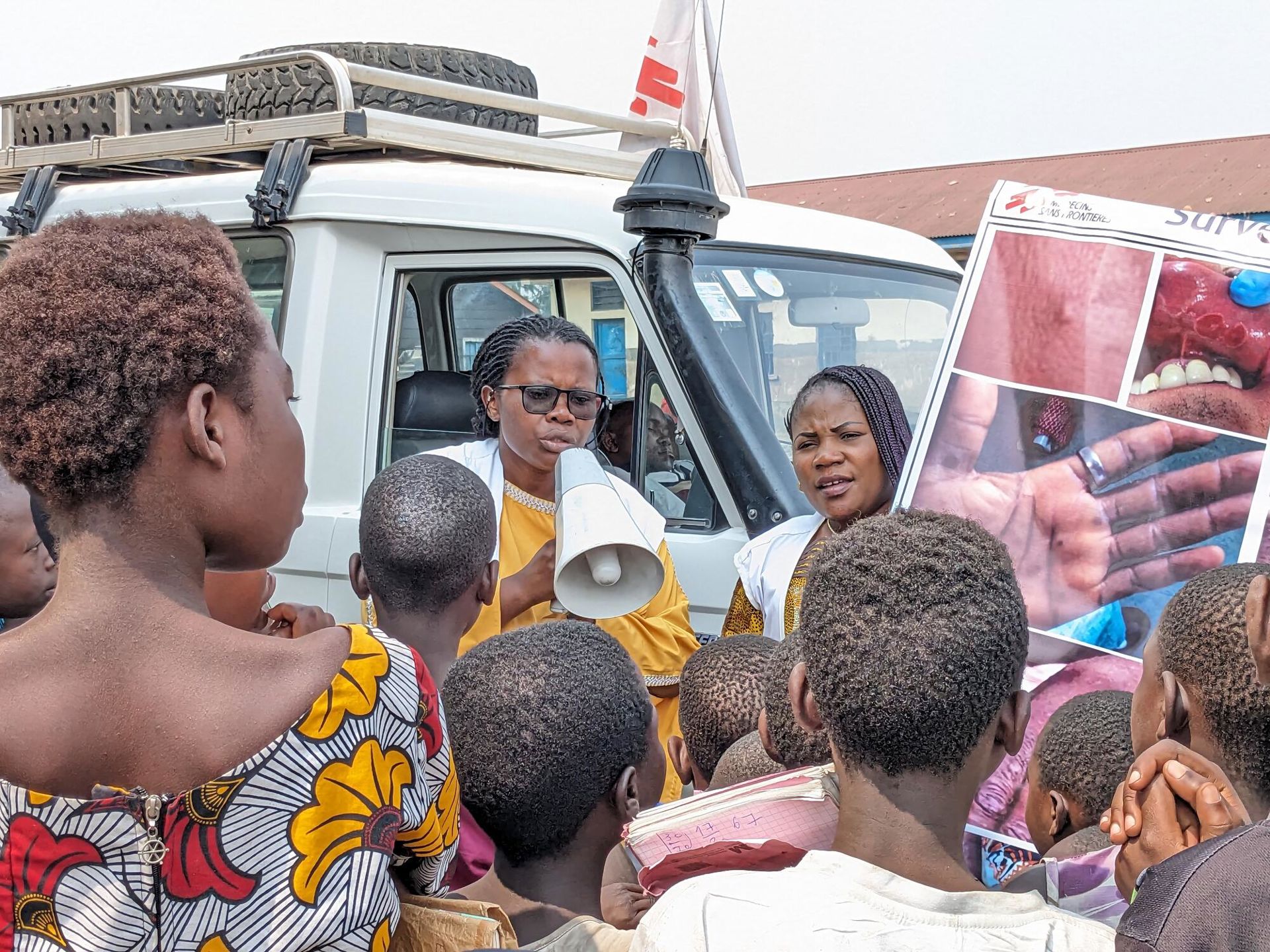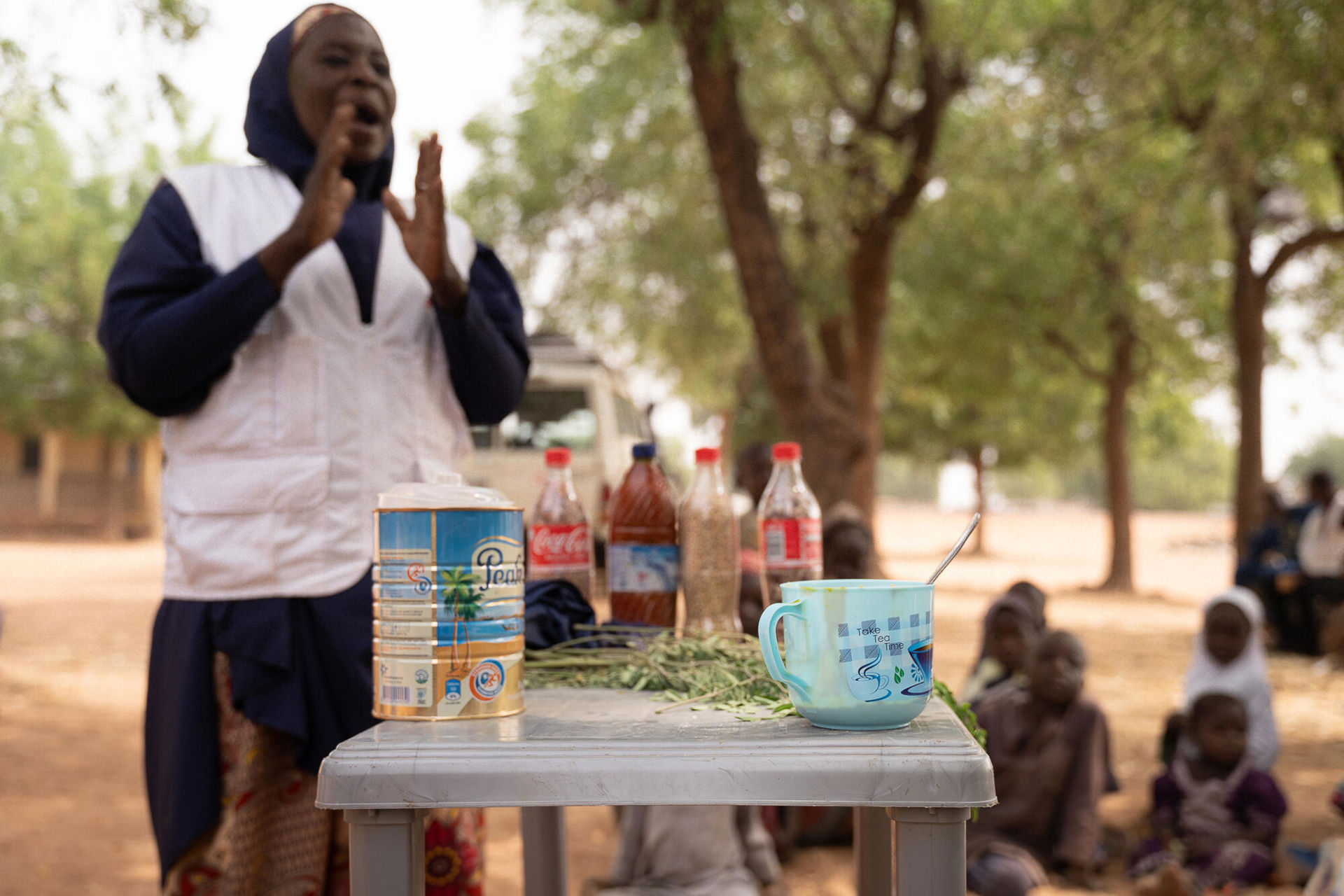In the Democratic Republic of Congo (DRC), Mpox cases have been on the rise for more than two years. However, the situation has worsened in recent months, with a surge in the number of people affected, a mutation leading to human-to-human transmission of the virus, and the notification of suspected cases in sites for displaced people in North Kivu. What is the situation in the country, and what are Médecins Sans Frontières (MSF) teams doing to deal with this new emergency?
Answers from Dr. Louis Albert Massing, MSF's medical coordinator in the DRC:
A: Mpox is a disease caused by the monkeypox virus. It is transmitted by close contact between individuals or with infected animals. It has been endemic in Central Africa (strain I) and West Africa (strain II) since the 1970s, and spread rapidly around the world in 2022-2023, with tens of thousands of cases linked to the West African variant reported in more than 110 countries.
In practical terms, Mpox causes rashes, lesions, and pain, all of which require 'supportive' treatment to manage the symptoms as effectively as possible and avoid further complications. Most patients treated recover within a month, but the disease can be fatal if left untreated. In the DRC, where the mortality rate for the strain is much higher than in West Africa, more than 479 people have died since the start of the year. By comparison, the WHO estimates that Mpox claimed the lives of 89 people worldwide in 2022.
A: Historically, the disease is endemic in 11 of the country's 26 provinces. However, the number of cases has been rising sharply for more than two years, leading health authorities to declare an epidemic in December 2022. The number of cases tripled in 2023, with more than 14,600 suspected cases notified and 654 deaths. But in 2024, the situation worsened further. Between January and mid-July, more than 12,300 suspected cases were reported, and 23 provinces were affected.
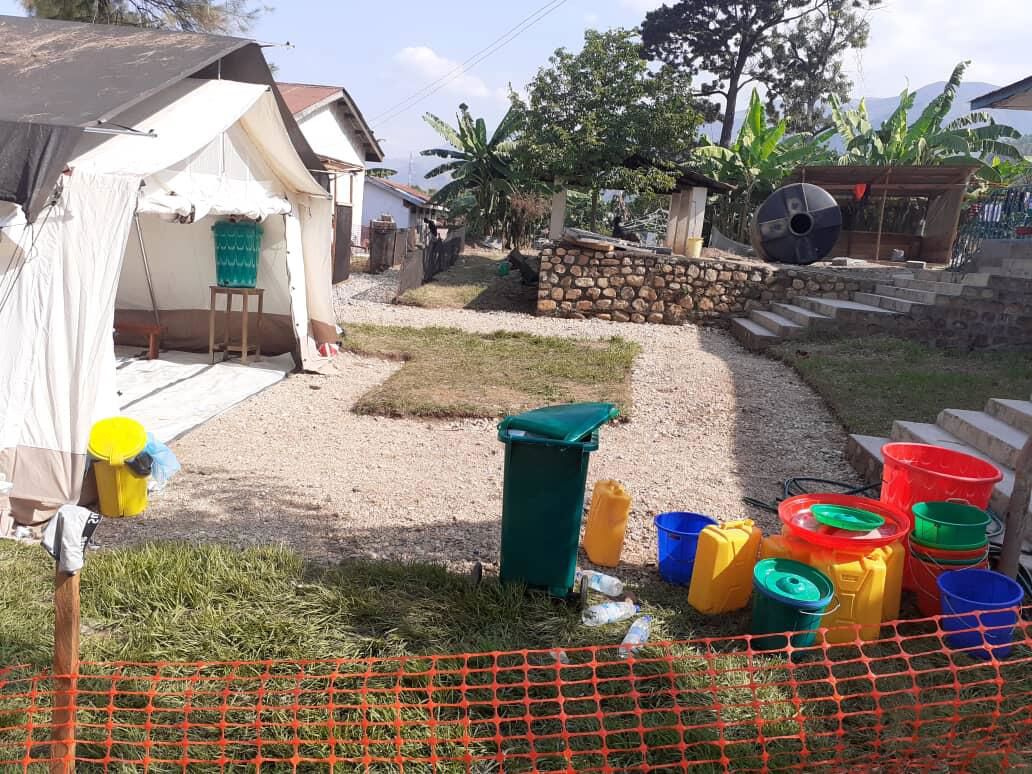 View of the isolation unit at the Uvira general reference hospital, supported by MSF in South Kivu. © MSF
View of the isolation unit at the Uvira general reference hospital, supported by MSF in South Kivu. © MSF
The acceleration of the epidemic is worrying, especially as a genetic mutation has been identified in South Kivu, with human-to-human transmission now uninterrupted for months. This had not yet been identified with the Congo Basin strain, unlike the West African strain that caused the global epidemic in 2022. In addition to this mutation, another cause for concern is that the disease has been recorded in the camps for displaced people around Goma, in North Kivu. There is a real risk of an explosion, given the huge population movements in and out of the DRC.
The identification of cases, the monitoring of patients, and the care available remain extremely limited, while the lack of vaccines makes the situation even more difficult. The perception of disease as being linked to mysticism or witchcraft in some communities also complicates people's adherence to public health measures. This illustrates the need to work closely with community leaders to get everyone to adhere to the measures.
Q: What is the situation regarding vaccines in the DRC?
A: The DRC has validated two vaccines and is trying to obtain supplies, but at this stage, no vaccine is yet available. Negotiations are underway with certain countries, and priority areas are being identified.
Q: What are MSF teams doing in the meantime?
A: We have set up several interventions to support the response to this outbreak. This is not the first time: emergency interventions were already carried out in 2021 in Mai-Ndombe province, then in 2023 and early 2024 in Equateur province. But we're stepping up our efforts given the recent developments.
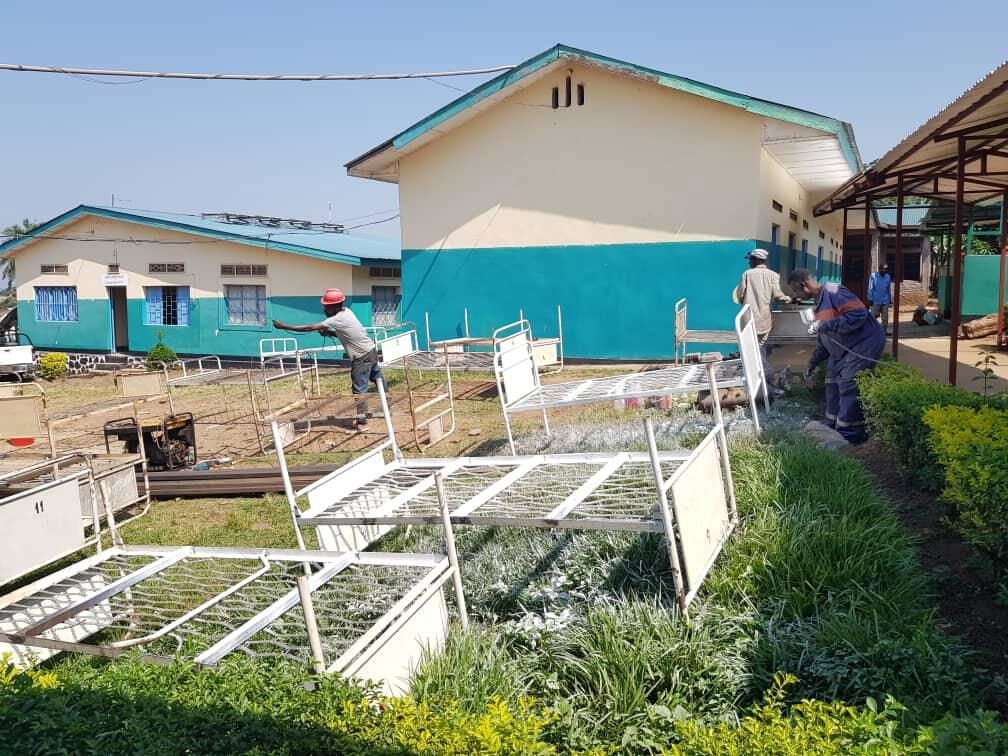 The teams are preparing the beds to equip the structures which will accommodate patients with Mpox at the Uvira general reference hospital in South Kivu. © MSF
The teams are preparing the beds to equip the structures which will accommodate patients with Mpox at the Uvira general reference hospital in South Kivu. © MSF
Since mid-June, one of our teams has been supporting the Uvira health zone in South Kivu. We are supporting the provision of care for people with severe symptoms at the Uvira general referral hospital and follow up with patients with milder forms of the disease on an outpatient basis while isolating suspected cases. Our teams are training medical staff in medical management and are also involved in infection control and community awareness-raising. In Uvira, over the last 5 weeks, more than 420 patients have already been treated by MSF, including 217 serious cases. We are also providing hospitals with kits for treatment and for taking samples.
In North Kivu, we have launched surveillance and awareness-raising activities in the IDP sites in Goma where we are present, and we are strengthening health care structures in terms of triage, isolation and management of patients presenting Mpox symptoms.
In the northwest of the country, two other interventions have been launched: one in the Bikoro health zone, in Equateur, and the other in the Budjala health zone in South-Ubangi. Both interventions will be carried out for several months. They are also aimed at training medical staff in medical and psychological care, strengthening epidemiological surveillance, infection control and prevention, including community awareness-raising. In Budjala, 329 patients were treated with our support between mid-June and mid-July. In Equateur province, we will also be conducting operational research with the health authorities to better understand the dynamics of the virus and how to combat the disease.
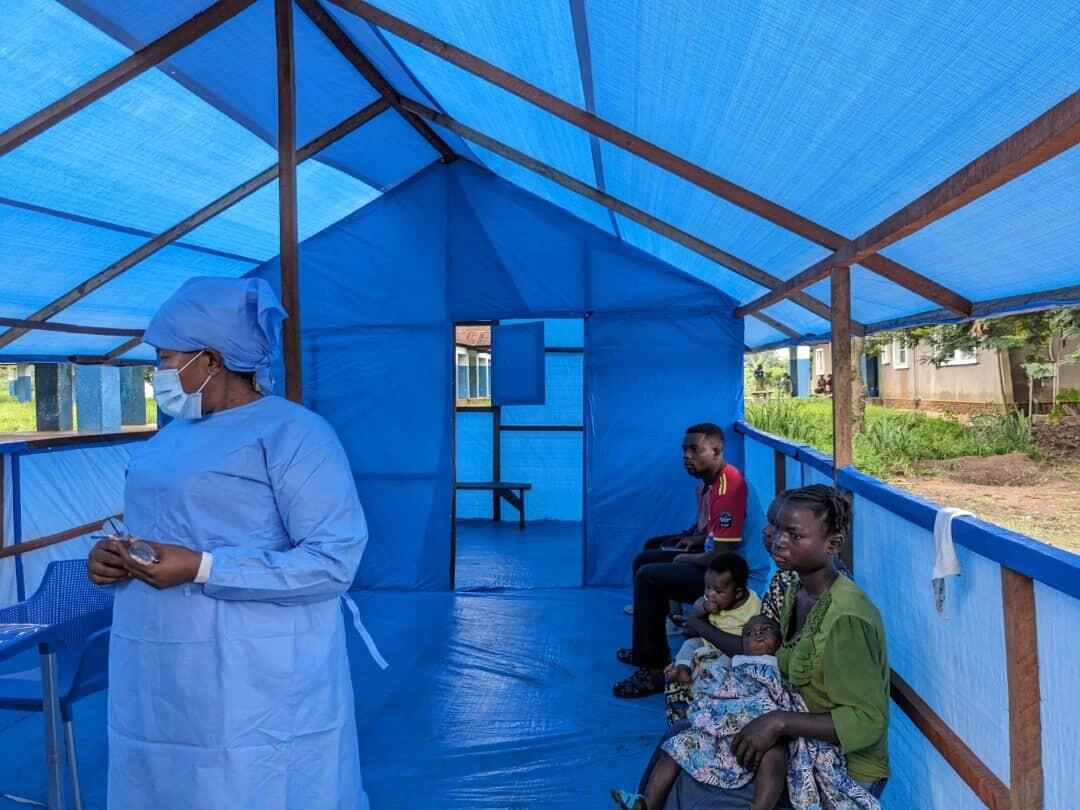 The patient triage area at the Budjala general referral hospital. MSF also deployed a team in the Budjala health zone in South Ubangi to support health authorities in the response against Mpox. © MSF
The patient triage area at the Budjala general referral hospital. MSF also deployed a team in the Budjala health zone in South Ubangi to support health authorities in the response against Mpox. © MSF
Q: What should the immediate priorities be?
A: Pending the arrival of vaccines, as many partners as possible must support other key aspects of the response such as laboratory analysis, surveillance, support for isolation and self-isolation, awareness-raising, etc. And, of course, patient care. Today, all these aspects suffer from shortcomings and require enormous resources to function properly.


